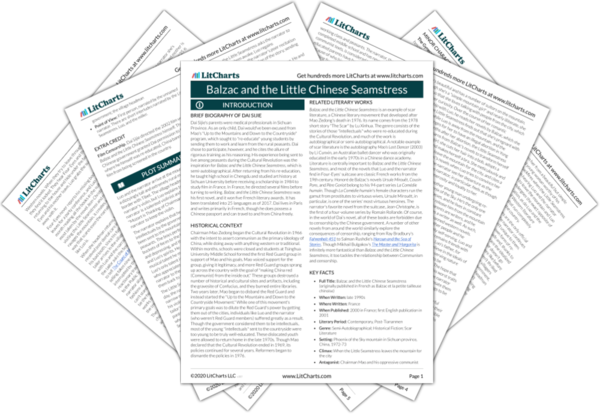Luo's alarm clock, which features a tiny rooster that crows when the alarm sounds, is a forbidden object. The alarm clock represents the bourgeois norms, such as timing the workday with a clock rather than with sunrise and sunset, that the Cultural Revolution was intended to quash. However, Luo’s clock is small enough to escape being confiscated by the headman upon Luo's arrival in the village, and when the headman discovers its existence he finds it fascinating rather than repellent. The headman's unexpected fascination with the clock shows the ways in which the Cultural Revolution is failing in its ideals; instead of curing Luo and the narrator of their bourgeois upbringings, the re-education campaign brings intellectual and urban ideas to the countryside. Furthermore, the clock becomes a symbol of power—it gives the headman a reason to yell and display his leadership to the village, and Luo and the narrator use it to secretly give themselves power over their lives by changing the time on the clock to move the workday forward or back. Thus, this forbidden symbol of bourgeois life is a source of power for all who encounter it, which shows the disproportionate influence of ideas and objects that are intended to be suppressed.
Luo's Alarm Clock Quotes in Balzac and the Little Chinese Seamstress
The sheer audacity of our trick did a lot to temper our resentment against the former opium growers who, now that they had been converted into "poor peasants" by the communist regime, were in charge of our re-education.

Unlock explanations and citation info for this and every other Balzac and the Little Chinese Seamstress quote.
Plus so much more...
Get LitCharts A+









